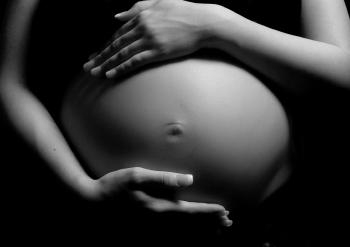Will Zoe’s Law endanger abortion rights?
Acknowledging the legal status of foetuses may spark a more nuanced conversation about abortion, argues Helen Pringle.
Acknowledging the legal status of foetuses may spark a more nuanced conversation about abortion, argues Helen Pringle.

OPINION: A proposed law being debated in the New South Wales parliament that aims to recognise the foetus as a person has sparked concerns about encroachments on women’s reproductive rights. But similar laws in other states haven’t, and acknowledging the legal status of foetuses may, in fact, spark a more nuanced conversation about abortion.
Known as Zoe’s Law, the bill would criminalise grievous bodily harm to a foetus as a separate offence from harm done to the woman carrying it.
It’s named in honour of Brodie Donegan, whose unborn child died at 32 weeks when Donegan was run over by a drug-affected driver in 2009. The driver was prosecuted for grievous bodily harm to Donegan, but could not be charged with Zoe’s death because the law does not recognise a child who is not “born alive” as a person.
The proposed bill recognises a foetus of at least 20 weeks gestation as “a living person” when it comes to its harm or destruction. It will enable separate charges to be laid for grievous bodily harm to the foetus in cases such as Brodie Donegan’s.
Concerns about the bill
There has been a lot of criticism of the bill, particularly by women’s groups, about what the NSW Greens spokesperson on the status of women, Dr Mehreen Faruqi, has ably called “the overarching conceptual change represented by the Bill”.
Dr Faruqi and others argue that the bill’s recognition of personhood in the foetus has or could have flow-on implications for other areas, particularly the legality and accessibility of abortion.
This is a legitimate concern, especially given that it was the conservative NSW member of parliament Reverend Fred Nile who introduced the first version of Zoe’s Law. His proposal was part of a package of other measures that would have tightened access to abortion in New South Wales.
But the bill under consideration now is a revision of the Nile proposal, drafted by the Liberal MP Chris Spence in consultation with Brodie Donegan. Donegan has clearly indicated she is pro-choice and doesn’t want the bill to be used as an anti-abortion measure.
The text and Explanatory Note to the proposed bill explicitly exempt:
anything done in the course of a medical procedure or anything done by or with the consent of the pregnant woman that causes the destruction of or harm to a foetus.
This exemption is an insufficient safeguard, argue the proposal’s critics. They cite the American experience where similar proposals (such as the 2004 Unborn Victims of Violence Act) are the thin end of a wedge used by pro-life groups to call the legitimacy of abortion into question, and to restrict access to it.
No evidence of wedge
But these concerns may be misplaced. Chris Spence’s proposal is less troubling than Nile’s, and there are provisions already in place in other Australian states that have not had this kind of flow-on effect on abortion thinking and practice.
In New South Wales, the 2005 Crimes Amendment (Grievous Bodily Harm) Act (Byron’s Law) extended the definition of grievous bodily harm to include the loss of an unborn child. The law was passed on the recommendation of the NSW Review of the Law of Manslaughter (Finlay report), which was commissioned after a woman lost her unborn child because of drunken road rage directed against her.
In Queensland, the 1996 case of Lippiatt, in which a man kicked his pregnant girlfriend because he didn’t want the child, led to changes in the Queensland Criminal Codethat use the term “the child” to refer to the foetus.
Deaths in road toll statistics often include the unborn. Both commonwealth and state laws in Australia provide birth and death certificates for a foetus who dies after 20 weeks gestation, and a woman whose unborn child dies after that point is eligible for paid parental leave and the baby bonus.
A more complex conversation
What this patchwork of recognition does is acknowledge and respect that something of value has been wrongfully lost when the unborn are subject to unlawful harm or destruction, that is, something of more value than a clump of cells.
Opinion polls consistently show that a majority of Australians support wide access to abortion, while often being uncertain or ambivalent about the status of the foetus.
They seem to be concerned about the value of the foetus without seeing this as a danger to wide access to abortion. Clearly, we are capable of complex moral reasoning about difficult problems of life and death.
Concern for the status of the foetus has been identified almost exclusively with pro-life positions on abortion, but there are other legitimate voices and stories that need to be heard in this discussion.
Most public defences of abortion ignore the question of the relation between the autonomy of the pregnant woman and the position of the late-term foetus. We need not be afraid of having this discussion; we might even come out of it with a moral sensibility more attuned to the complexity and nuance of the vulnerabilities of day-to-day life.
Dr Helen Pringle is a Senior Lecturer in the School of Humanites and Languages, UNSW.
This opinion piece was first published in The Conversation.